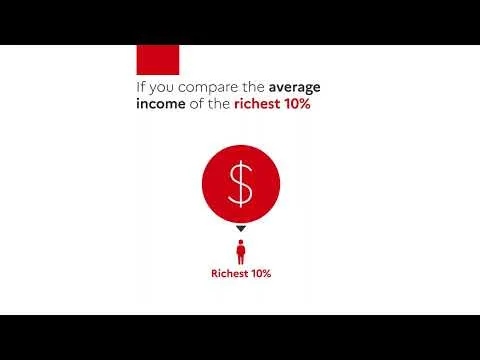It is widely recognized that we live in a world full of inequalities, where billionaires can be seen throwing money around while people with nothing live just a few meters away on the streets. In some places, individuals can profit from breaking job regulations, not paying workers what they are owed, and getting away with it.
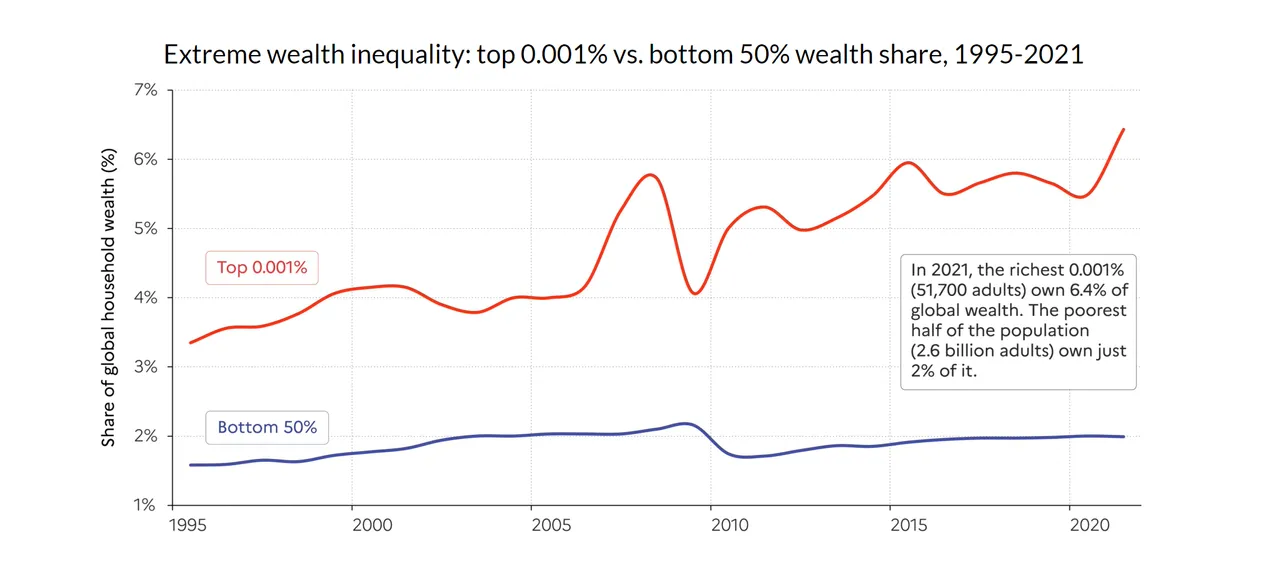
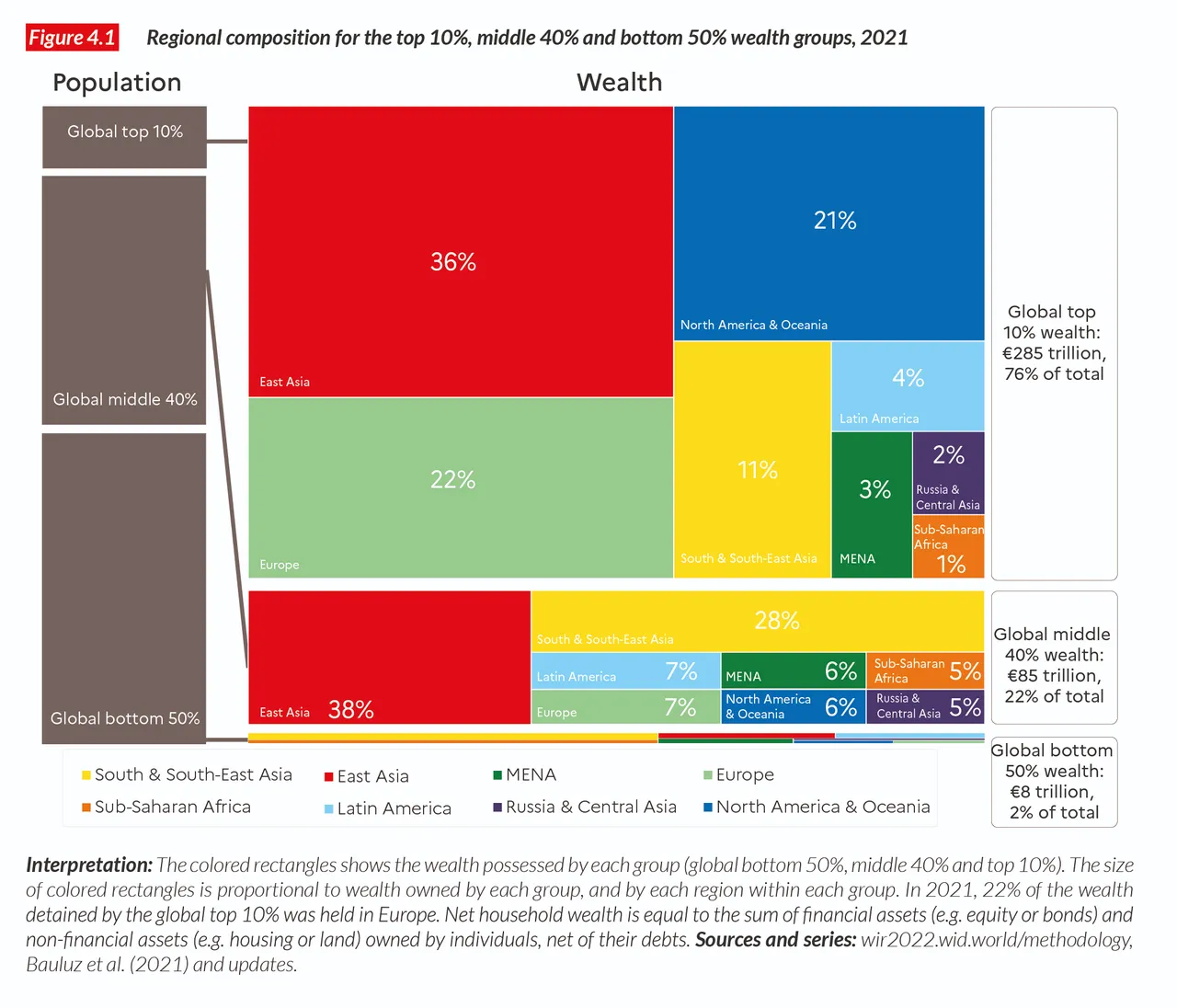
Even in the wealthiest country in the world, the United States, 170,000 families control 20% of the entire nation's wealth, which is 0.1% of the population. The top 1% controls 39% of the US wealth, while the "bottom" 90% only controls 26%. However, this figure is likely even lower, as many wealthy people hide their assets to evade taxes. For example, according to Gabriel Zucman's research, wealthy individuals are hiding at least $7.6 trillion in offshore accounts, which corresponds to 8% of the world's economic wealth. Additionally, national governments hide 80% of these assets, resulting in a loss of at least $200 billion in tax revenue annually.
This data clearly shows that inequalities are too large and are projected to increase. When there is so much inequality, anything can be bought with the right amount of money, including opinions, elections, and news. This power allows the rich to influence people by distorting the truth, ultimately controlling governments. This kind of power imbalance leads to societal collapse, as people eventually realize the truth and revolt.
The cause of this inequality is our human greed. While our systems are theoretically good, the rich have enough power to exploit weaknesses, hide their money, and avoid paying taxes. They continue to become wealthier, putting more weight on the poor.
Fortunately, blockchain can offer a solution to these problems. In blockchain, nothing can be hidden, and money cannot disappear like cash. While you may not always know who owns an address with money, you can track and trace it to prevent tax evasion. The blockchain provides real democracy, making everything accessible to everyone, and thereby eradicating tax evasion and other problems that make life harder for people with less money.
In conclusion, we need to recognize the problem of inequality and its far-reaching consequences. Blockchain is an effective tool to address these issues and provide a more just and equal society for everyone. Of course we humans also have the ability to destroy anything.😂😂
Re-reading the post i have to admit i started to writing for tax evasion and went way out of topic to the a societal collapse event and blockchain.
The inspiration of this rant post was Gabriel Zucman The author of The Hidden Wealth of Nations: The Scourge of Tax Havens
The uneven increase in wealth since the 1990s
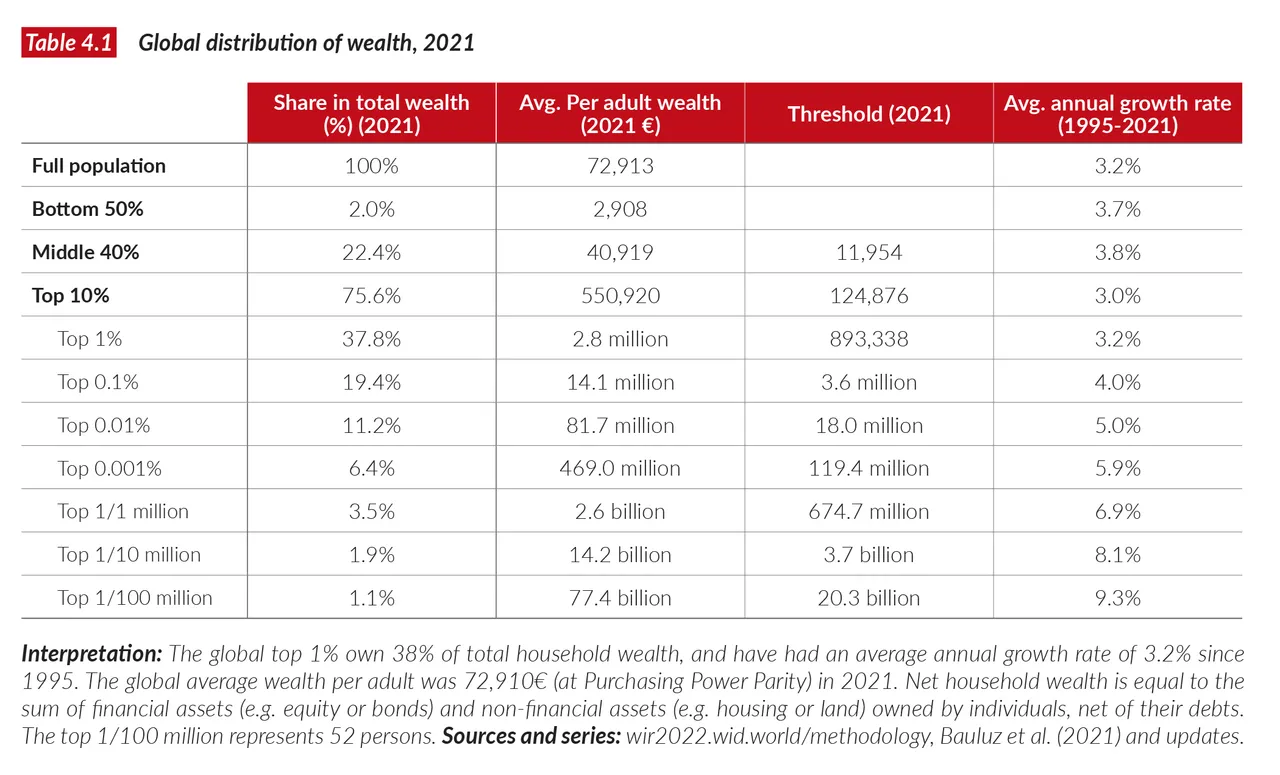
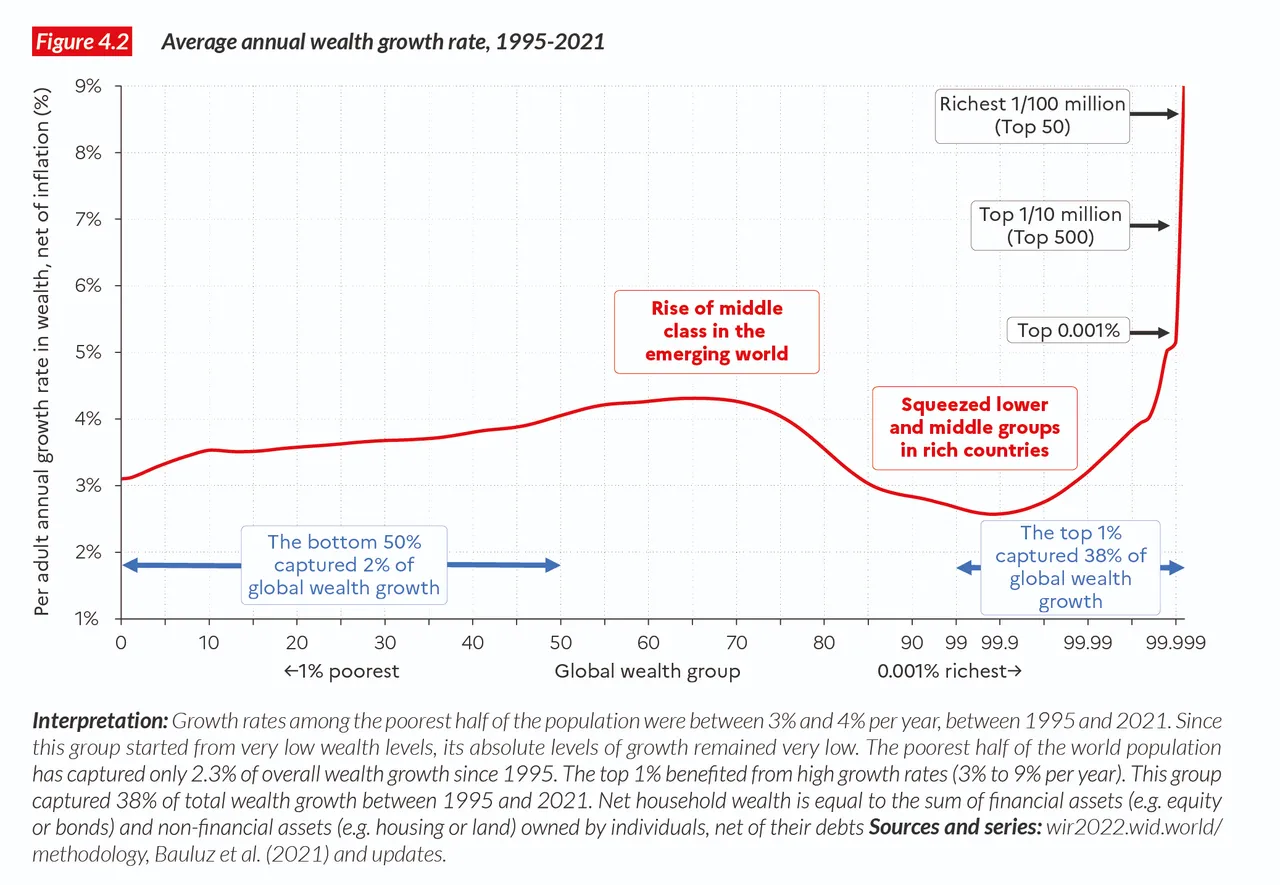
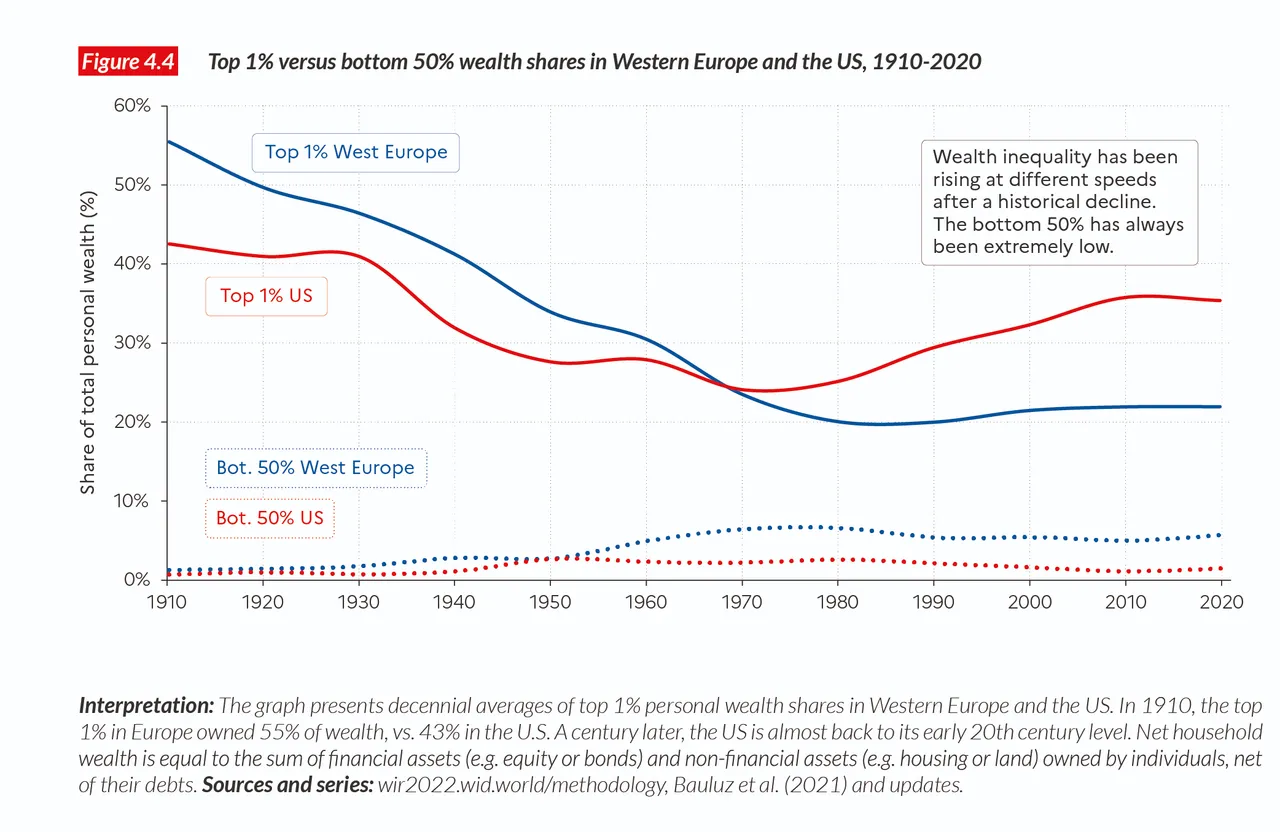
All The graphs i used and a lot more can be found here
The World Inequality Lab is a research laboratory focusing on the study of inequality worldwide. The WIL hosts the World Inequality Database, the most extensive public database on global inequality dynamics.
